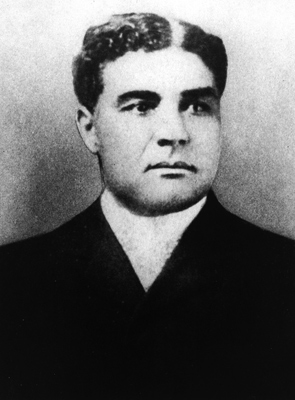Henry P. Cheatham facts for kids
Quick facts for kids
Henry Plummer Cheatham
|
|
|---|---|
 |
|
| Member of the U.S. House of Representatives from North Carolina's 2nd district |
|
| In office March 4, 1889 – March 3, 1893 |
|
| Preceded by | Furnifold Simmons |
| Succeeded by | Frederick A. Woodard |
| Personal details | |
| Born | December 27, 1857 near Henderson, Granville County (now Vance County, North Carolina) |
| Died | November 29, 1935 (aged 77) Oxford, North Carolina |
| Political party | Republican |
| Spouses | 1st: Louisa Cherry; 2nd: Laura Joyner |
Henry Plummer Cheatham (December 27, 1857 – November 29, 1935) was an important American leader. He was a teacher, farmer, and politician. Cheatham was elected to the United States House of Representatives as a Republican from North Carolina. He served from 1889 to 1893.
He was one of only five African Americans elected to Congress from the Southern states during the Jim Crow era. This was a time when laws made it very hard for Black people to vote. After Cheatham and a few others, no African Americans were elected from the South until 1972.
Contents
Early Life and Education
Henry Plummer Cheatham was born into slavery in 1857. This was near what is now Henderson, North Carolina. After the Civil War ended, slavery was abolished.
During the Reconstruction era, new public schools opened for Black children. Henry attended these schools in Vance County. A white friend, Robert A. Jenkins, helped him financially.
With this help, Cheatham went to Shaw University. This was a historically black college in Raleigh, North Carolina. He graduated from Shaw University in 1883.
After college, he worked as a school principal for a short time. Then, he was elected as the Register of Deeds for Vance County. He held this local government job from 1884 to 1888. Vance County had many Black residents and was mostly Republican.
Family Life
In 1884, Henry Cheatham married Louisa Cherry. She had also been a student at Shaw University. Louisa taught music at the school where Henry was principal.
They had three children together: Charles, Mamie, and Henry Plummer, Jr. Louisa's sister, Cora Lee Cherry, married George Henry White in 1886. George White also became a U.S. Congressman later on.
A special scholarship program is named after both congressmen. It is called the Cheatham-White Scholarship program. It helps students at North Carolina A&T State University and North Carolina Central University.
After Louisa Cheatham passed away in 1899, Henry married Laura Joyner. They also had three children: Susie, Richard, and James.
Political Career
Henry Cheatham became very involved in the Republican Party. He worked to create important places for African Americans. For example, he helped establish the Colored Orphan Asylum in Oxford in 1883. He also supported schools to train Black teachers.
Serving in Congress
In 1888, Cheatham was elected to the United States House of Representatives. He won by a small number of votes. He represented North Carolina's 2nd congressional district. The person he defeated was Furnifold McLendel Simmons. Simmons later led efforts to take away voting rights from Black citizens.
During his campaign, some newspapers claimed Cheatham told Black voters that his opponents would re-enslave them. Other news sources said these claims were exaggerated.
Cheatham was one of only five African Americans elected to Congress during the Jim Crow era. This was a time when many laws made it hard for Black people to vote. After these few congressmen, no African Americans were elected from the South until 1972.
As a congressman, Cheatham supported federal money for education. He also supported the McKinley tariff, which was a tax on imported goods. He wanted a bill to protect the voting rights of African Americans in the South. This bill passed the House but not the Senate.
Cheatham worked hard for the people he represented. He served on important committees in the House. These included committees on Education, Public Buildings, and Agriculture.
In 1890, Cheatham won re-election. He was the only Black congressman in the Fifty-second Congress. He tried to win a third term in 1892 but lost. The boundaries of his district had been changed. Also, another party, the Populist Party, split some of the votes.
He ran again in 1894 but did not win. In 1896, he competed against his brother-in-law, George Henry White, for the Republican nomination. White won and became the next Black congressman from North Carolina.
Later Life and Legacy
In 1897, President William McKinley appointed Cheatham to a special job. He became the federal Recorder of Deeds for District of Columbia. This was an important and well-paying position. He held this job until 1901.
After four years in Washington, D.C., Cheatham returned to North Carolina. He started farming in Littleton, North Carolina.
Later, he moved to Oxford, North Carolina. He was appointed superintendent of the state Colored Orphan Asylum. This was the orphanage he had helped establish years earlier.
He served as superintendent for 28 years. He was known for making the orphanage much better. Henry Plummer Cheatham passed away in Oxford in 1935.
People remembered Cheatham as a smart and fair man. Even a white politician who supported segregation, Josephus Daniels, respected him. Daniels said Cheatham earned the trust of both Black and white people.
See also
 | James Van Der Zee |
 | Alma Thomas |
 | Ellis Wilson |
 | Margaret Taylor-Burroughs |

